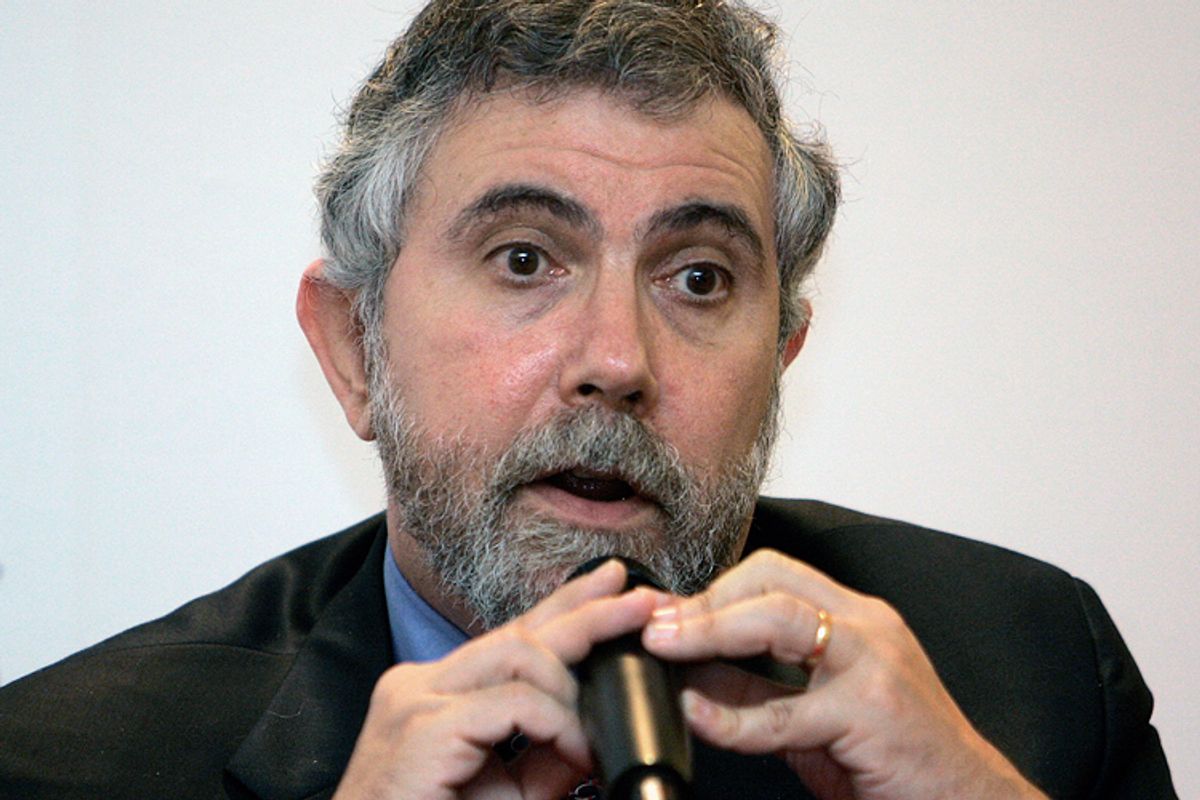Thanks to the GOP's ineptitude, the Affordable Care Act remains "the law of the land, for the foreseeable future," following the spectacular defeat of the American Health Care Act on Friday. But as Paul Krugman reminds us in his Monday column, it's not time to break out the champagne just yet. In fact, the hard work is just beginning.
"What could be done to make health care work better going forward?" the New York Times columnist asks. The answers are less complicated than Donald Trump might think.
As Krugman reminds us, the ACA seeks to solve the problem of American health care in two ways: first, by collecting taxes and using the revenue to pay for health care for the lowest income Americans through Medicaid. That's actually working well, except of course, "in Republican-controlled states that won’t let the federal government aid their residents." For those making above the lowest income wages, the issue gets murkier.
Second, absent a public option, the ACA relies on private insurance companies to provide affordable policies through a combination of regulations and subsidies. Because this is the private sector, and because political realities vary from state to state, the results vary widely. Sure, as Krugman writes, it's been going well in California, where "the number of people with health insurance has soared, while premiums are still well below expectations."
If only this were the case across the board. Unfortunately, Krugman warns "too few healthy people have purchased insurance, despite the penalty for failing to sign up; this is partly because many of the policies offered have high deductibles, making them less attractive. As a result, some companies have pulled out of the market. And this has left some areas, especially rural counties in small states, with few or no insurers." No, it's not the death spiral that Paul Ryan and his cronies would have you believe, but it is badly in need of reform.
The crux of the problem is that "you need to induce people who don’t currently need medical treatment to pay the bills for those who do, with the promise that the favor will be returned if necessary."
So how do we fix it? Krugman offers a few options.
One option is to spend more money:
A report from the nonpartisan Urban Institute argues that the A.C.A. is “essentially underfunded,” and would work much better — in particular, it could offer policies with much lower deductibles — if it provided somewhat more generous subsidies. The report’s recommendations would cost around 0.2 percent of G.D.P.; or to put it another way, would be around half as expensive as the tax cuts for the wealthy Republicans just tried and failed to ram through as part of Trumpcare.
Another option is to solve the problem through industry competition. Krugman believes that "Better subsidies would help enrollments, which in turn would probably bring in more insurers."
And what about bringing back the idea of a public option? That is, "insurance sold directly by the government, for those who choose it? At the very least, there ought to be public plans available in areas no private insurer wants to serve."
There are other technical fixes, most of which the tweeter-in-chief couldn't bring himself to contemplate. But the point is that contrary to Trump's cry that "Nobody knew that tax reform could be so complicated," there are indeed options out there. What's complicated is getting any of our elected officials to actually implement solutions.


Shares